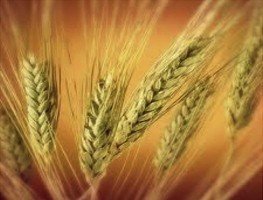Marrone Bio appoints Kevin Helash as Chief Executive Officer
Helash replaces Pamela Marrone, founder of Marrone Bio, announced her retirement as CEO in December 2019
Marrone Bio Innovations, Inc. announced the appointment of Kevin Helash as its new chief executive officer. Concurrent with joining the company, he will be appointed to serve as a member of the board of directors. Helash, 55, a native of Manitoba, Canada, will join the company as early as August 1, 2020. His effective date is pending receipt of permanent residency status or the applicable visa, both of which are in process.
Helash replaces Pamela Marrone, founder of Marrone Bio, who announced her intention to retire as CEO in December 2019. Marrone will remain with Marrone Bio as CEO until Helash’s first day of employment, and thereafter will continue to serve as a non-employee director of the company.
A 28-plus-year agricultural industry veteran, Helash comes to Marrone Bio from Agrinos AS, a global-scale biological crop input provider specializing in biofertilizers and biostimulant products. As chief executive officer of Agrinos since November 2017, Helash has led a major restructuring and transformation of the company to create a platform for future long-term growth.
Prior to joining Agrinos, Helash was a vice president and corporate officer with Agrium (now Nutrien Ltd.), one of the world’s largest agricultural product distributors. During his 26-year career, he held senior management roles leading global sales, marketing, logistics and supply chain strategies. In international leadership positions for Agrium spanning the Americas and Europe, he interfaced directly with growers, retail and wholesale distributors, and investors. As head of the company’s Canadian retail operations, Helash grew the organization to a multi-billion-dollar revenue entity, and led the successful acquisition and integration of Viterra’s retail agribusiness to create the largest agricultural retail organization in Canada.
“After a comprehensive search process, we are delighted to have someone with Kevin’s extensive experience in the agricultural industry join Marrone Bio as we continue to drive the company toward profitability through a combination of revenue growth, margin expansion and cost management,” says Bob Woods, chairman of the board. “His passion for and leadership in the biologicals space — coupled with his track record of delivering key operational and financial objectives — make him the ideal candidate to take Marrone Bio to its next level of success.”
“Marrone Bio has a strong reputation of delivering innovative, sustainable solutions to its customers, and I’m excited to be part of the next chapter in its business evolution,” Helash said. “The company has made significant strides in its commercial operations, driving revenue growth and gross margin expansion. Recent initiatives and R&D advancements have strengthened its position as a unique leader in the biologicals industry, with top-of-mind awareness among growers, distributors and potential partners.”
Helash replaces Pamela Marrone, founder of Marrone














